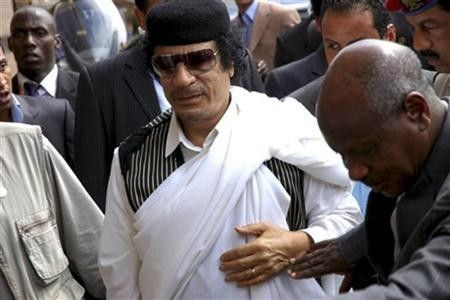Reports of anti-government clashes and deaths in Libya

Reports are coming out of Libya of increased anti-government protests which have left at least sixteen people dead, as activists have called for a “Day of Rage” through social networking sites.
In the town of al-Bayda, the local security has been sacked after a clash between local authorities and demonstrators resulted in fatalities. There are also unconfirmed reports of similar disturbances in the cities of Benghazi and Zentan, where several government buildings and a police station were reportedly set on fire.
If true, such protests are extraordinary given that any form of dissent has not been tolerated in the country.
There are also unconfirmed reports of government forces shooting at protestors, some from helicopters.
The Benghazi protest was reportedly ignited by the arrest of Fathi Terbil, who represents relatives of the 1,000 prisoners allegedly massacred by security forces in the Abu Salim prison in Tripoli in 1996. He was later freed, according to reports.
Today the Libyans broke the barrier or fear, it is a new dawn, exiled opposition leader Faiz Jibril was quoted as saying by the Associated Press.
Libya has been ruled by Colonel Moammar Qaddafi since 1969, making him the Arab world's longest-serving leader. He retains almost total control of the media, and it believed to rule through committees.
As such, state-run television stations have chosen to broadcasts rallies that are supposedly pro-government.
Human Rights Watch has reported that Libyan security forces arrested at least 14 people for trying to organize anti-government rallies. Among those detained are Mohamed al-Sahim, a writer, and four former political prisoners.
“Colonel Muammar Qaddafi should learn from his former neighbors that stability has to include respect for peaceful protest,” Joe Stork, deputy Middle East director at Human Rights Watch said.
© Copyright IBTimes 2024. All rights reserved.





















